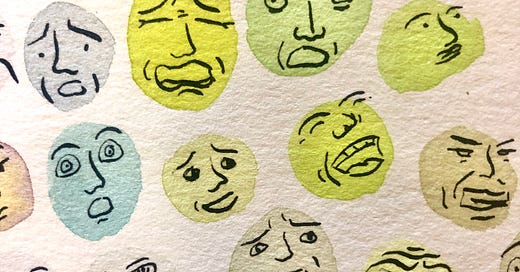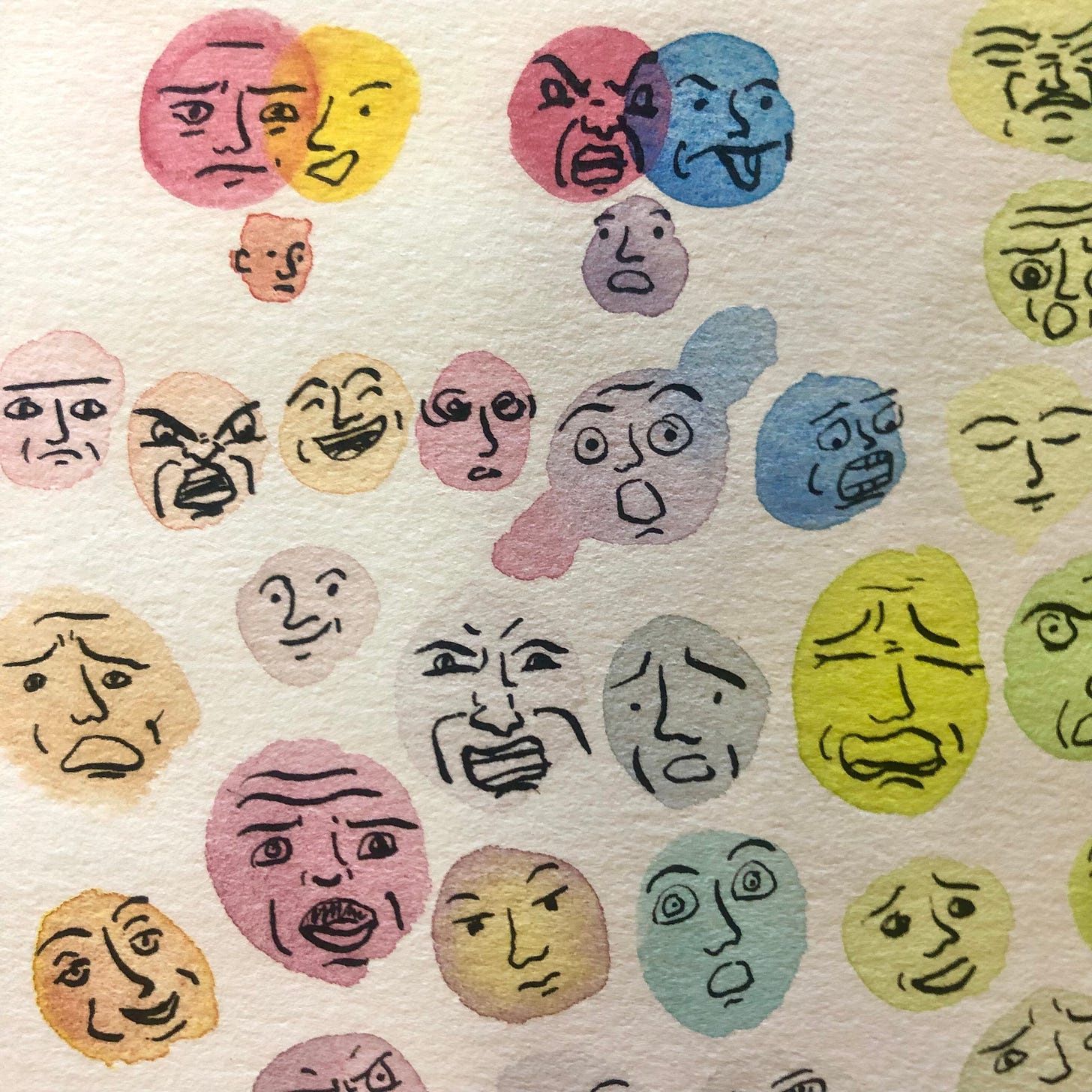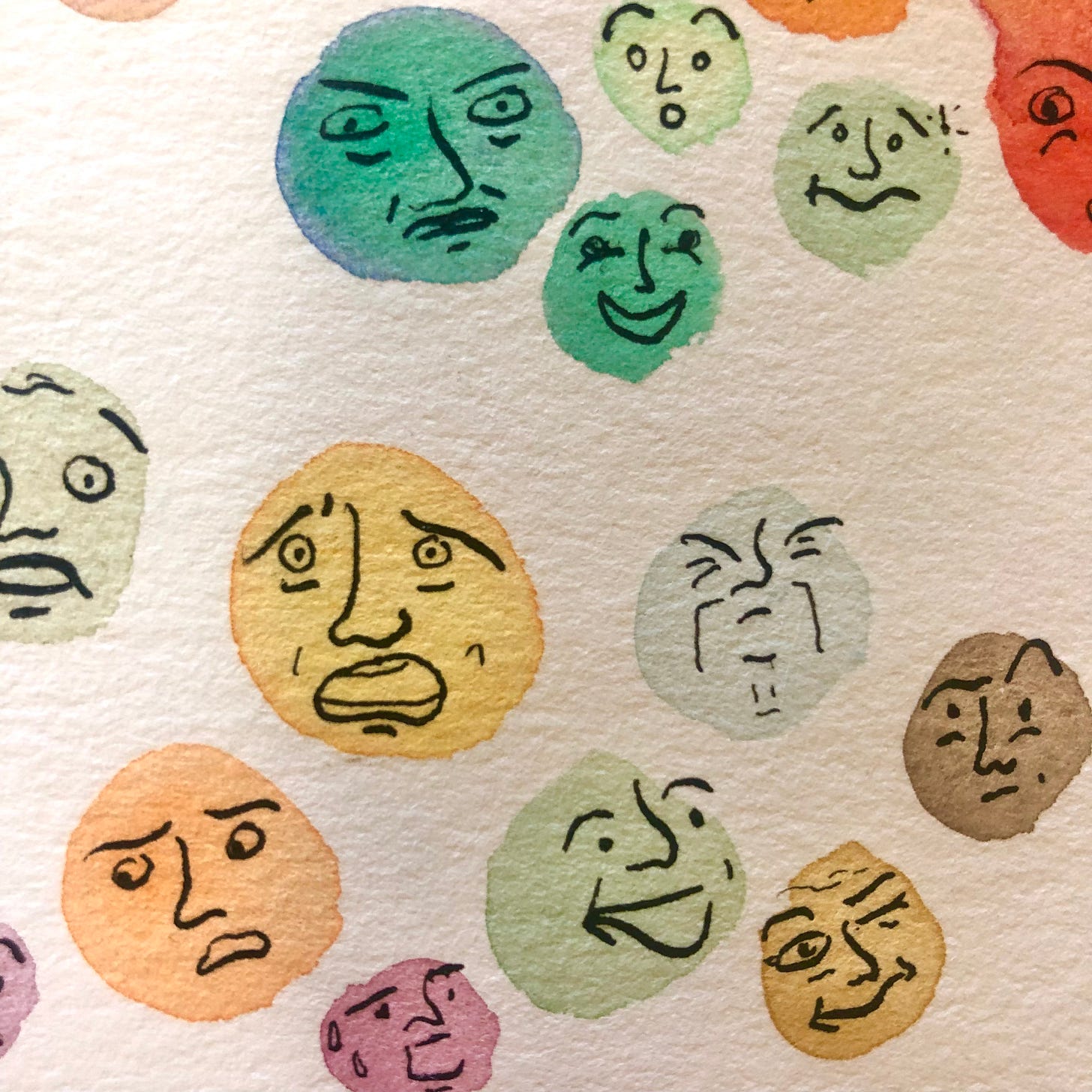With their distinctive blend of visual art and narrative, comics have become more than just a form of entertainment. They have cultivated a vibrant, engaged community that transcends geographical boundaries and unites individuals with shared interests and passions. In today’s newsletter, we delve into the heart of this phenomenon, exploring how the singular language of comics fosters a sense of belonging and camaraderie among its readers.
To shed light on this topic, we have interviewed several comics creators and reached out to the community on the Substack app, gathering insights from those who are intimately familiar with the power of this visual storytelling medium. We'll be discussing how the unique structure and format of comics captivate readers, sparking their imagination in ways that other media cannot, and how this shared experience acts as the foundation for a thriving, supportive community. Make sure to tell us in the comments how you think comics helps create community!
Sarah Shaw at Found Objects said:
Comics is such a great way to communicate ideas to a broader audience. By combining words with pictures, we are able to tell a story that goes beyond what writing, illustration, or photography can offer alone. I’ve led zine and comics workshops with so many different types of people--from American high school students to young professionals in Kathmandu, Nepal to online workshops with adults from around the world. It’s always fun and empowering to learn how to tell a story visually with minimal resources and equipment.
Teresa Wong at Closet Dispatch told us:
In the few short years I’ve been part of the comics community, I’ve come to believe that comics people are the best people. I’m sure there are exceptions out there, but all the cartoonists I’ve met have been extremely kind, generous and humble. Mostly, we are a bunch of nerds who are just really into putting ink down on paper. For example, when I stood in line at the Toronto Comic Arts Festival in 2019 to get some Raina Telgemeier books signed for my kids, I expected to be ushered through quickly and treated with professional tolerance. Instead, Raina greeted me with arms wide open, excitedly introducing me to her assistants as her “friend from Instagram.” We had never interacted before this, and I can’t imagine any other NYT-bestselling author being so gracious and familiar with a lowly Instagram follower.
During the pandemic, I was also lucky to be involved in The Believer’s Friday Night Comics workshops, which brought together like-minded people from all over the world every week to draw. For a cartoonist based in Calgary, Canada (a.k.a. the middle of nowhere), it was an amazing feeling to connect with so many others through comics.
Andy Warner thinks:
Since at least the 1970s in North America and the rise of the underground, comics have always been very heavily about the community. The very well established comics convention circuit in the US and Canada creates a venue where peers are able to meet up, kind of like for writers conferences, but they're actually selling their new material to a live audience to fund their plane ticket and accommodations, kind of like playing a music show. It's cool, kind of unique to the medium, and fosters a strong sense of fellowship, connection and exchange inside of the community of creators. And that's just the North American perspective. Globally, comics are part of a transnational "nerd" culture that's only grown and become more knit together, first with the internet, and then social media.
There are people all over the world who love comics and read them. There are different traditions of comics, and comics fandoms exist everywhere. Wherever you go, you can find communities of people expressing themselves through comics. That was actually an experience I had growing up and moving around as a kid, reading French comics, reading Spanish comics, reading Japanese comics.
S. Mirk mused:
I think we live in a rare time period in human history where anyone has the tools to publish their own work. The ability to write something and immediately publish it, without needing anyone’s permission or having to get past gatekeepers, is really revolutionary. But most people have so much anxiety about writing and drawing. For a lot of people, it’s terrifying to stare down at a blank page. When I ask people to draw something, most often they’ll respond, “I can’t draw.” I always find that really sad—the way people shut down their love of drawing years ago and its fermented into anxiety. I think comics and zines are a great antidote to that anxiety, because they can look like whatever you want. There’s no correct way to create a comic. They can be anything! With zines, I typically use a speedy, low-stakes format where I draw a zine on one sheet of printer paper and fold it up. Creating zines helps me embrace imperfection. It doesn’t have to be “good.” It doesn’t have to be perfect. It’s just about expressing what I’m thinking about and processing a feeling. So in my workshops, I try to help people see that every time they put pen to paper, they can create whatever they want, and hopefully they feel empowered to share their thoughts with the world.
Dawn Wing told us:
In addition to being a comics artist, I am also an educator and librarian who enthusiastically loves promoting all things comics to anyone (faculty, students, community members, comics festival goers, etc.) who is willing to listen. In my professional experiences, I believe that a sense of community could be fostered through the collective creation of comics in the context of exploring history, identity and memory. In my role as a teacher-librarian, I have had the opportunity to teach comics-making in classrooms, libraries, comics/zines festivals, and academic conferences. When participants come together to experiment with creative self-expression through making comic zines, I structure activities so that they are fun and accessible for people of all ages and backgrounds. Afterwards, it is my hope they will also share these experiences with their friends, family, peers and communities to spread the joy of making comics anytime, anywhere!
Sophie Yanow pointed to comics as a medium:
One of the things I love about comics is the accessibility. They’re relatively easy to make in terms of materials, they have a low financial barrier to entry (although they do take a lot of time, which can of course be a barrier). But if you do make them, they’re easy to share – they can be online, or in print. So if you want to have a dialog between artists, it’s not difficult. The turnaround is pretty fast.
M.S. Harkness asked whether comics do create community:
Does it? I mean, it's niche so you have to sort of find others online and/or leave your house. I don't think it's much different from people that like model trains or ventriloquism. We've all glommed onto it because we're visual people in a sense- we think through things vividly in our minds and maybe our other senses aren't as well developed? It helps us interpret our thoughts or our existence, seeing it laid out in a singular timeline kind of format. Then there's the people that are in it for the escapism element, all clamoring around each other to confirm their own grim lifestyles. Sometimes community is just being friends with people who are also smart or talented.
Over on Substack notes, a few fellow writers and creators chimed in:
Jason McBride at Weirdo Poetry says:
I feel people are naturally inclined to wanting to be part of a community, but many of us also have a massive fear of rejection. Comics allows people to bridge the gap between their fear of rejection and their desire for belonging by offering something to talk about.
Betje at Betje’s Comics wrote:
When I think of auto bio comics particularly, I don’t think there is a more gentle AND powerful way to show a different perspective. It’s an amazing way to see be in someone else’s shoes for a little bit.
E.R. Flynn at Escape from Clowntown says:
Like minds will always seek out the empathic expressive line.
Adam Ming at Adam’s Notes says:
I think comics can tell stories that people can rally around. Comic used to be collectible and that also fosters community.
jonathan baylis of So Buttons says:
Small press creators tend to find communities at conventions themselves, approaching folks whose work they love and building relationships over the years.








Comics create worlds that blend together to form unified communities, where the themes are the creativity of comics and the universe of imagination of its creators.